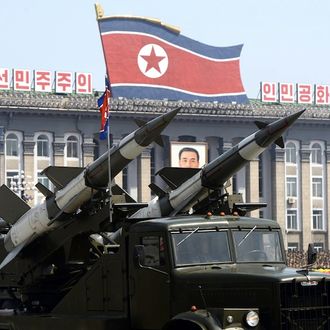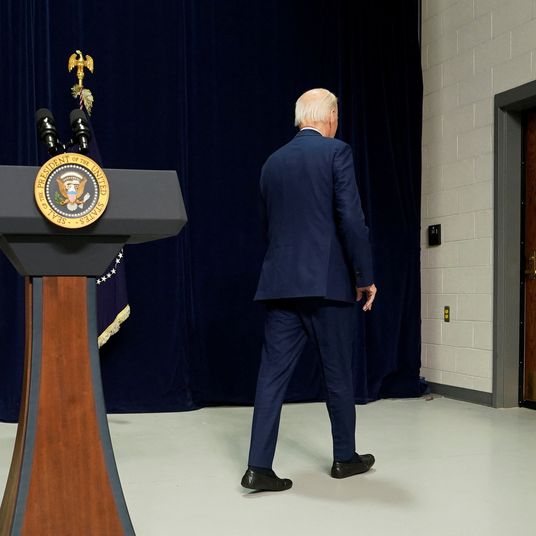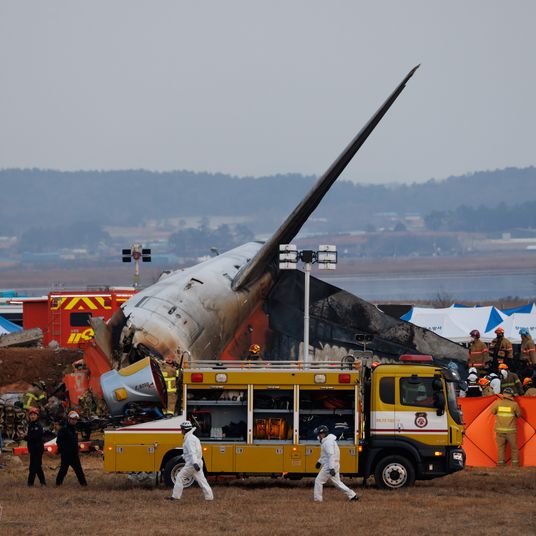
It was so easy to swiftly declare North Korea’s last attempt at launching a ballistic missile satellite-carrying rocket that the reclusive state actually announced the failure to its own people, which it rarely does. But the second attempt on Wednesday went, if not perfectly, at least a lot better than the first try. The rocket flew over Japan, authorities there reported, and North Korea said its satellite had made it into orbit. Of course, we’ve heard that one before and it was a lie.
“It was not immediately clear if the third stage carrying the satellite had made it into space,” Reuters reported. But either way, the launch would be a pretty big success for the North after last April’s embarrassing flop in which a similar rocket broke up and fell into the sea within minutes of launching. And after failed launches in 2006 and 2009. This time, the North’s KCNA news agency reported scientists had “found technical deficiency in the first-stage control engine module of the rocket,” which would delay the launch, but then surprised everyone by launching it early, according to CNN.
North Korea says the rocket launch was purely to place a weather satellite, but the technology is pretty similar to that of a ballistic missile, which is what Western analysts see when they look at the burgeoning space program. The North is prohibited from nuclear testing or missile testing under U.N. sanctions, but so far the United States has only said it “noted” the launch. Japan, however, is already calling for a U.N. Security Council meeting.
As for the timing, let’s not forget this launch comes right around the first anniversary of Kim Jong-il’s death. After a somewhat trivial first year in power, marked by that previous launch failure, his son Kim Jong-un is probably pretty relieved things went well the second time around.
Update: NORAD has confirmed the successful launch, saying in a statement: “Initial indications are that the missile deployed an object that appeared to achieve orbit.”
Update II: The White House released a statement calling the launch “a highly provocative act that threatens regional security, directly violates United Nations Security Council resolutions 1718 and 1874, contravenes North Korea’s international obligations, and undermines the global non-proliferation regime.”





























